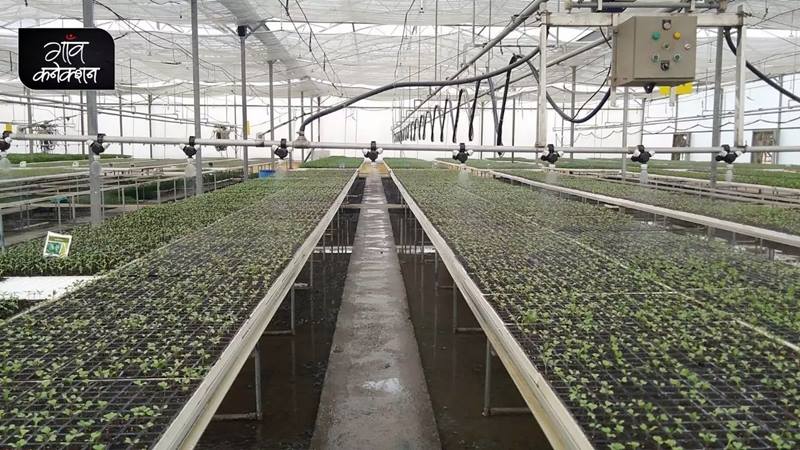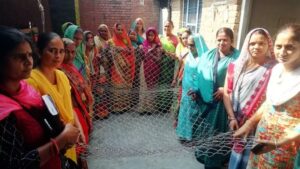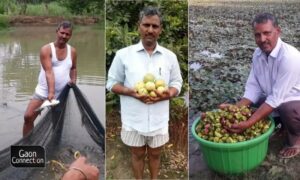Vegetable farmers are highly prone to losses as multiple factors like poor yield, inclement weather, and unfavourable market conditions often play spoilsport. In such a situation, better knowledge about vegetable cultivation can significantly enable the farmers to undertake informed decisions and reap better profits.
In a bid to help the farmers maximise their profits, the Centre of Excellence for Vegetables — a joint project with assistance from the Israeli government was set up in 2018 at Uttar Pradesh’s Kannauj district, situated at a distance of 123 kilometres from state capital Lucknow.
Seeds of the vegetables are even produced here in the off-season using a polyhouse, net house, and walk-in-tunnel where the plants are grown in conditions favourable to their growth.
The automatic machines equipped with the Israeli technology provide fertilisers, water, and other supplies in a balanced calibration.
Out of season harvest helps in getting better profits
Thousands of farmers, not only from Uttar Pradesh but also from neighbouring states such as Madhya Pradesh are being trained by this facility and are profiting by obtaining saplings ahead of the natural season of these vegetables.
Gaurav Mishra of Atah village in Uttar Pradesh’s district Auraiya is an active participant in this program.
“We have gained a lot from the centre… we can cultivate any plant irrespective of the season. This ensures that the vegetable commands a premium price in the market,” Mishra told Gaon Connection.
He has been receiving training at the center for about three years now.
“I have planted papaya, luffa, tomato, cabbage, capsicum, cabbage, and other saplings. While the total farm area is between five to six hectares, I grow vegetables on about two hectares, the rest is used for long-term harvests like grains. So vegetable cultivation aids my income,” Mishra said.
The center, which spans 8.62 hectares, was established at the cost of Rs 78 million by Uttar Pradesh Chief Minister Yogi Adityanath.
How does the centre operate?
DS Yadav, the centre’s in-charge, explained that the centre is actually a high-tech nursery that trains farmers by organising camps and provides them with high-quality seeds.
“If the farmers provide seeds, one rupee is charged per sapling; if the farmers do not provide seeds,they have to pay two rupees instead,” Yadav told Gaon Connection.
“In this case, the farmer receives more seedlings for fewer seeds. If the farmer grows it himself, he may get just 50-60 per cent of the saplings. There is no impact of weather at this place as we artificially create conditions suitable for the plants. Also, it’s not the soil that we use for cultivation. Highly nutritious mineral deposits like vermiculite, perlite, and cocopeat are used instead,” he added.
Also Read: On its 93rd Foundation Day, ICAR sums up its contribution to the agriculture sector in the country
Free training for farmers, their food and accommodation taken care of
The centre provides three days of free training to farmers and they receive free accommodation and food.
“Scientists from other universities also share their expertise. We assist the farmers until they can sell their products on the market. Reducing financial risks to the farmer and maximising their profits. We also help with packaging, grading, and marketing. At present almost 5,000 farmers are associated with the centre,” Yadav informed.
Also Read: A village in Bihar switches to organic farming, sets an example
The official told Gaon Connection that almost three thousand farmers visited the centre last year.
“Fifteen districts in Uttar Pradesh, and two districts in Madhya Pradesh are affiliated with us. Approximately 10,000 farmers have benefited directly from services provided by the centre so far,” he said.



















